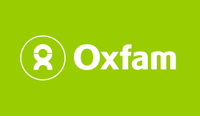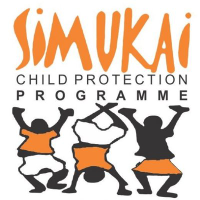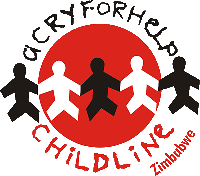TERMS OF REFERENCE (TOR) FOR END OF PROJECT EVALUATION -(SCREEN ONLINE)
Job Description
Brief background of the project
According to UNICEF’s State of the World’s Children Report 2017 ‘Children in a Digital World’, children and adolescents below the age of 18 years constitute one third of internet users worldwide. A 2020 report issued by Interpol highlighted that online crime in Africa was becoming a major security concern for law enforcers. Looking at the high levels of poverty, Africa has become a target of organized online crimes, with sexual exploitation and trafficking taking a lead. According to a 2021 Digital Report done by We Are Social Hootsuite; 33.4% of the Zimbabwean population are internet users. The report further highlights that between 2020 and 2021 the number of internet users increased by 4.2% (203 thousand) in Zimbabwe. The government through the Ministry of Information Communication Technology embarked on a project to increase the connectivity of children to the internet in schools. The Covid-19 pandemic has increased the use of e-learning and this has seen more children accessing the internet.
The growth in internet usage among children is worth celebrating, as it provides developmental opportunities for children. It remains critical to appreciate that the more children interact with the internet, the more they are exposed to the dangers found on the internet. According to the Wi-Fi Map (2021) there are currently 1047 free Wi-Fi hotspots in Zimbabwe. Children make use of this free Wi-Fi to access the internet for various reasons which include surfing, online learning, games and chatting. The vulnerability of children on online spaces is increasing daily. Children are at risk of several online dangers of which sexual abuse and exploitation remain the common ones. According to Childline Zimbabwe data (2021) since the beginning of the Covid-19 pandemic to date, the organization received over 347 cases of online abuse, of which 16% were of a sexual nature. These mainly include issues of sexual grooming, revenge pornography, sexual harassment and receiving harmful content. Child survivors of the various violations are often left depressed and this has serious implications on their mental health.
As digital platforms continue to evolve, preventive and response structures need to be strengthened and developed as far as online violence is concerned. Duty bearers need capacity strengthening on how to systematically handle instances of Online Child Sexual Exploitation and Abuse. There is need to develop the capacity of national infrastructure, parents, caregivers and children in Zimbabwe, in order to match the standard at which online activity is growing. This also includes effective and modern ways of reaching out to children with information, as they use the internet. A number of cases of online child sexual abuse are embedded in cultural practices, hence a strong need to involve families and communities in addressing this concern.
The literature review on disability and online abuse and exploitation informed the project that there are significant gaps in information on sexual exploitation and abuse of children with disabilities online and it makes it impossible to accurately know the level of incidence or prevalence of OCSEA. There is stigma around reporting abuse and let alone online abuse and its more so when it involves children with disabilities (We Protect Global Alliance, 2021). It is also important to note that communication challenges and limitations are high among children with disabilities. In order to achieve an inclusive and just society the active meaningful inclusion of children with disabilities is a prerequisite.
Overall project objective
1. Improve early intervention to prevent victimization of children, and victim support to assist in recovery
2. Engage families and caregivers in preventing the sexual exploitation and abuse of children, and responding to harmful or otherwise unwanted experiences online
The Screen Online seeks to positively influence children, families and communities to adopt strategies that increase the prevention of child abuse online. The project is aimed at preventing and interrupting online abuse and violence through strengthening children and communities to identify potential online risks, threats and reduce exposure to online violence. In order to ensure that families and caregivers continue to provide online support to children, this project supports district child protection committee members, ensuring that they are aware and capacitated to respond to issues of child online sexual abuse and exploitation. There have been initiatives implemented to strengthen reporting and response systems for OCSEA which include; school-based awareness campaigns, setting up of the video relay system in schools, training and capacitating of helpline agents with sign language skills to respond to reports from children with disabilities, training of social media experts (to infiltrate social media platforms) and strategic PAPFA workshops with key decision makers.
Through digital parenting sessions and awareness campaigns, parents and caregivers have been encouraged to come up with digital platform time management/schedules for their children so as to help prevent children spending too much time online as well as come up with more social engagement and interaction options for children that encourage them to interact one on one with other children, and the best initiatives will be awarded to parents. Digital literacy sessions for parents/caregivers have been conducted to empower them with skills on how to enhance online security for their children. Childline has also been engaging children in education activities on online safety. Childline in partnership with HIT is developing games which will be deployed through Google play store that engage children to assist in conveying information on online safety. In addition, the project will hold a series of online safety symposiums for schools and University students. Childline and its partners to adequately allocate resources to ensure children with disabilities are not left behind. DZT, with its expertise in disability inclusion programming, is leading in all activities to do with active participation of children with disabilities and to be supported with adequate resources for them to do so.
Scope of the assignment
Childline Zimbabwe seeks the services of a consultant to undertake an End of Project Evaluation, to provide evidence of impact, share knowledge and enhance transparency, and inform future decision making and planning.
Location
The End of Project Evaluation will be conducted in the 4 project districts namely; Harare, Bulawayo, Mutare and Masvingo.
Methodology
The selected research consultant will be required to prepare methodology and timelines in partnership with Childline, for the completion of the deliverables of the study.
Duration and Reporting
The study will be executed over a period of 2 months from the time of the signing of the contractual agreement by both parties (Childline and the Consultant
Duties and Responsibilities
Expected Deliverables
1. Inception Report submitted in pdf format, with data collection tools and an evaluation matrix with questions and data collection methods to be used for each evaluation question. The inception report to be discussed and approved by Childline Zimbabwe
2. Draft one of the evaluation report upon completion of fieldwork.
3. Presentation and validation of the evaluation results in a validation workshop.
4. Revised report (draft two) incorporating findings from the validation workshop to be submitted in pdf format.
5. Final report – one electronic copy and five hard copies submitted in pdf format. The final report should designed and not more than 65 pages excluding annexes . The evaluation report is expected to be written in clear and concise English in the structure below:
• Cover page (Title of the evaluation, the date/time frame of the evaluation, recipient’s name, name(s) of the evaluator(s) involved, date of submission)
• Preface or Acknowledgements (Optional)
• Table of Contents
• List of Acronyms
• List of Charts, Table or Figures [only required in long reports that use these extensively]
• Executive summary [Stand-Alone, about 5 pages, summary of report. This section may not contain any material not found in the main part of the report]
• Main Part of the Report
- Section 1: Introduction/Background and Purpose: [Overview of the end-term evaluation. Covers the purpose and intended audiences for the evaluation and the key questions as identified.]
- Section 2: Evaluation Approach and Methods: [Brief summary, Additional information, including instruments should be presented in an Annex]
- Section 3: Findings: [This section, organized in whatever way the evaluator(s) wishes, must present the basic answers to the key evaluation questions – unequivocal and for each research question -, i.e. the empirical facts and other types of evidence the evaluator(s) collected including the assumptions, best with case stories or studies and innovations (with photos)]
- Section 4: Conclusions: [This section should present the evaluator(s)’ interpretations or judgements about its findings]
- Section 5: Recommendations: [This section should make it clear what actions should be taken as a result of the evaluation for future projects. Recommendations must be relevant to practice and implementation oriented]
- Section 6: Lessons Learned: [In this section the evaluator(s) should present any information that would be useful to people who are designing / managing similar or related new or ongoing projects in the country or could be adopted elsewhere. Other lessons the evaluator(s) derive from the evaluation should also be presented here.]
- Section 7: References
• Annexes [These may include supplementary information on the evaluation itself; further description of the data collection/analysis methods used; data collection instruments; evaluation schedule, List of people involved and other relevant documents]
*All documents should be submitted in pdf format
Qualifications and Experience
A post graduate degree in research and or monitoring and evaluation will be an added advantage.
At least 10 years working experience in M&E related issues and/or development context.
Experience of providing leadership, support and guidance on MEAL across development projects, Strong background in child protection.
Previous experience in conducting evaluations and research studies.
Excellent report writing skills.
Strong analytical skills including analysis of both quantitative and qualitative data.
Excellent organizational and time management skills required to meet deadlines.
The consultant should be willing to work with the project staff throughout the process.
Fluency in the local languages spoken in the target districts.
Safeguarding and PSEAH
Childline Zimbabwe has in place a Child and Youth Safeguarding Policy, Confidentiality Statement and Protection from Sexual Exploitation, Abuse and Harassment Policy which the Consultant will be expected to sign and will be bound by it thereafter. All information gathered during the evaluation is confidential and is not to be disclosed to any other stakeholder, including media, individuals and/or other firms. Failure to adhere to the provisions of the Confidentiality Statement may result in cancellation of the contract.
How to Apply
Interested applicants should provide a proposal covering the following aspects:
1. Letter of interest.
2. Detailed technical proposal clearly demonstrating a thorough understanding of this ToR and including the following:
Demonstrated previous experience in coordinating and administering studies of a similar nature, with at least three references of recent work conducted.
Proposed detailed methodology for the evaluation.
Ethics and child safeguarding approaches, including any identified risks and associated mitigation strategies.
A proposed timeframe detailing activity and a schedule/work plan (including a Gantt chart).
Team composition and level of effort of each proposed team member, if applicable.
Previous experience/mandates similar in nature including type of study, sector, organization.
3. A financial proposal with a detailed breakdown of costs for the study.
Itemized consultancy fees/costs including taxes.
Itemized field data collection expenses.
Itemized administrative expenses.
Copy of registration certificate, VAT and other relevant documents.
4. Curriculum Vitae(s) of all proposed team members outlining relevant experience.
5. Names and contact information of three references who can be contacted regarding relevant experience.
6. A copy of a previous reports of similar work undertaken on: End line study.
7. A Consulting Firm profile (if applicable).
Bid Format
If you meet these requirements, kindly send an expression of interest (EOI) with a detailed budget to [email protected], [email protected] and [email protected] with your CV and covering letter outlining your qualifications that are more relevant for the assignment, copies of relevant certificates, a sample of similar work done previously should be submitted and a professional reference linked to sample work. Please note that due to the expected volume of applications, only pre-selected candidates will be contacted.
Similar Listings

Baseline Assessment for the project, “Integrated Emergency Response for El Niño Drought Affected Communities in Zimbabwe,
Oxfam — Harare

Terms Of Reference
Oxfam — Harare

Terms Of Reference
Oxfam — Harare

CALL FOR EXPRESSION OF INTEREST FOR CONSULTANCY SERVICES FOR THE DESIGN AND IMPLEMENTATION OF A CAPACITY DEVELOPMENT PROGRAM FOR SIMUKAI CHILD PROTECTION PROGRAMME
Simukai Child Protection Program — Harare

Location: Harare
Company: Childline Zimbabwe ~~ 0
Expiry Date: 2024-02-20 00:00:00
